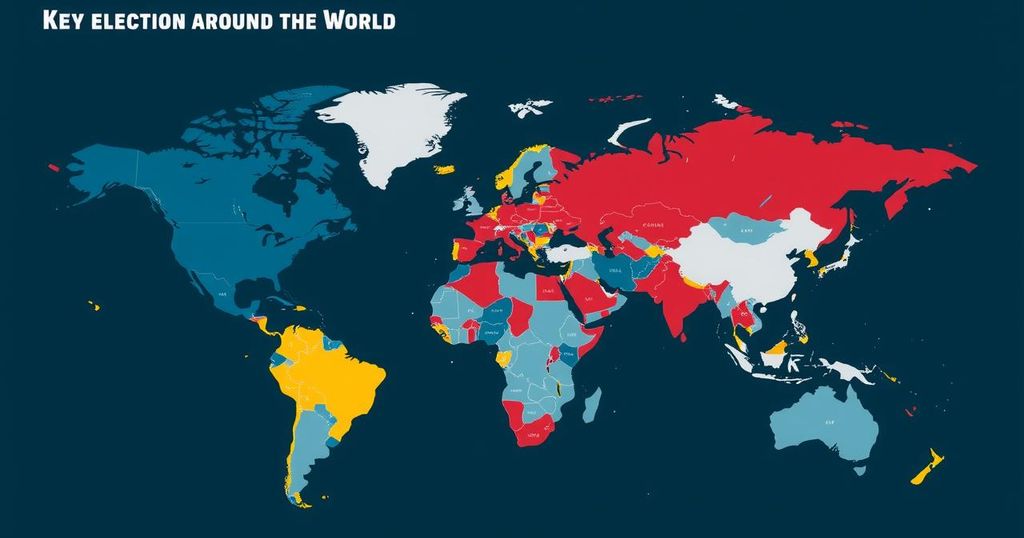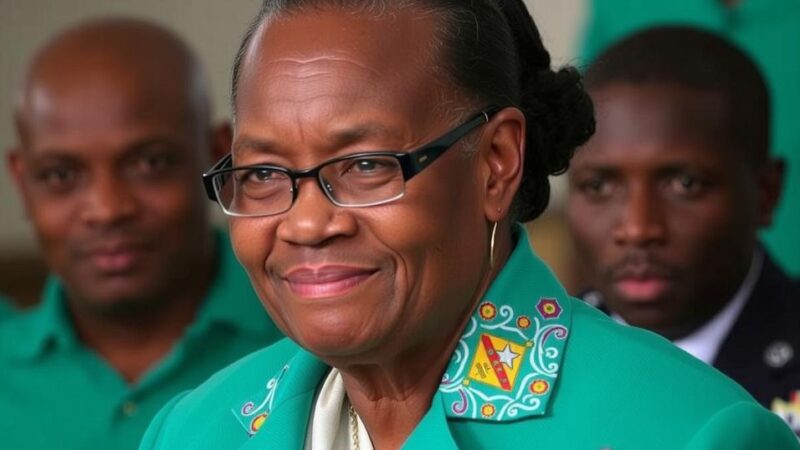The 2024 elections have significantly impacted global political landscapes, including Donald Trump’s return in the U.S. and setbacks for Modi in India. Claudia Sheinbaum’s historic win in Mexico, a coalition government forming in South Africa, and further developments in the U.K., France, and Pakistan exemplify worldwide political shifts, including decolonial movements in Senegal. Upcoming elections in Romania hold promise for influencing the EU’s future.
The 2024 electoral cycle has provided a significant retrospective on various global votes, reflecting impactful changes in political landscapes worldwide. Chief among these is the United States, where Donald Trump’s return marks an acute shift in both domestic and international political dynamics, challenging the very foundations of liberalism. Meanwhile, India witnessed a surprising setback for Prime Minister Narendra Modi, as opposition parties gained ground, potentially altering the trajectory of the BJP’s dominance. In Mexico, Claudia Sheinbaum’s election as the nation’s first female president deviated from worldwide trends, demonstrating resilience in governing party success.
South Africa’s elections have led to a transformative political culture with the African National Congress losing its majority, paving the way for a coalition government. Japan experienced a noteworthy electoral defeat for the Liberal Democratic Party, yet remains poised on the right despite the loss. In Pakistan, political strife surrounding former Prime Minister Imran Khan fuels ongoing protests amid allegations of electoral manipulation. The United Kingdom sees Labour’s substantial victory tempered by dwindling subsequent support, while France’s snap election results in an unexpected alliance with far-right parties that complicate governance.
Lastly, Senegal’s recent elections highlight a pivot towards decolonial politics as President Bassirou Diomaye Faye was elected with a clear mandate for reform. Furthermore, the upcoming presidential elections in Romania are positioned to significantly influence the European Union’s future.
The 2024 election cycle marked a pivotal year globally, with significant political changes occurring in various countries. From the United States to India, and from Europe to Africa, millions of citizens exercised their right to vote, leading to unforeseen electoral outcomes that could reshape national and international policies. Understanding the implications of these elections is crucial to grasping the evolving political landscape and the potential challenges and opportunities that lie ahead for democracies around the world.
The electoral events of 2024 have illustrated a paradigm shift in the political terrain across several nations, highlighting both victories and challenges to established powers. Donald Trump’s return heralds reform in U.S. politics while Modi faces new opposition at home. The victories of both Sheinbaum in Mexico and Faye in Senegal emphasize grassroots movements aligned against colonial legacies. As governments navigate these shifts, the global political environment remains dynamic and unpredictable, with ongoing implications for international relations.
Original Source: www.semafor.com







